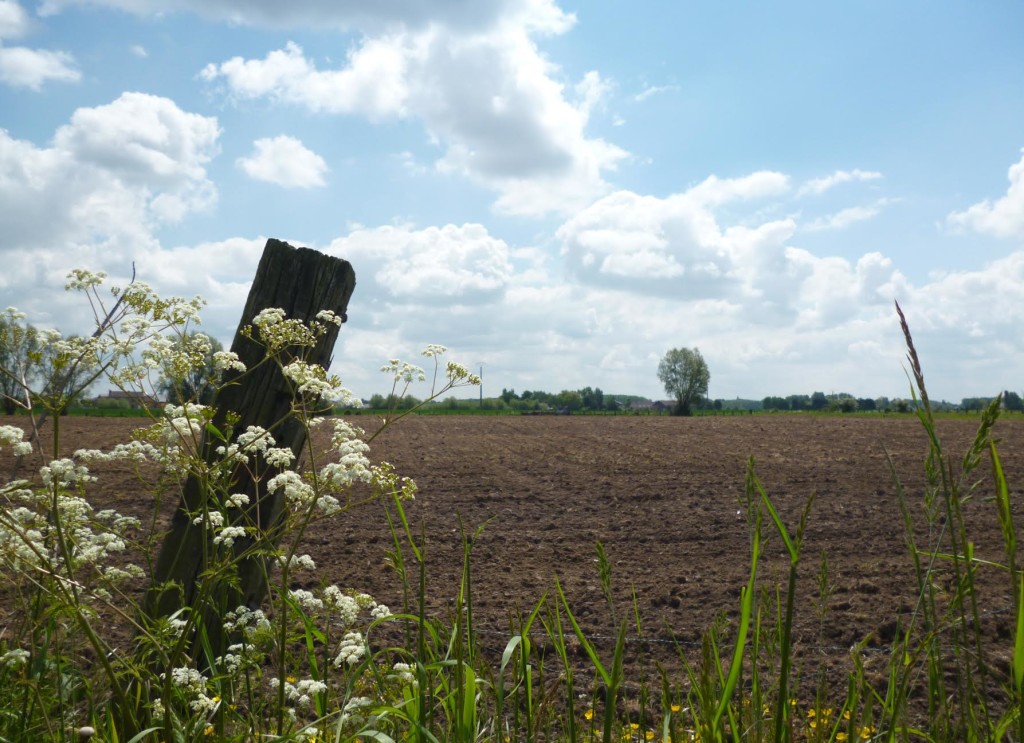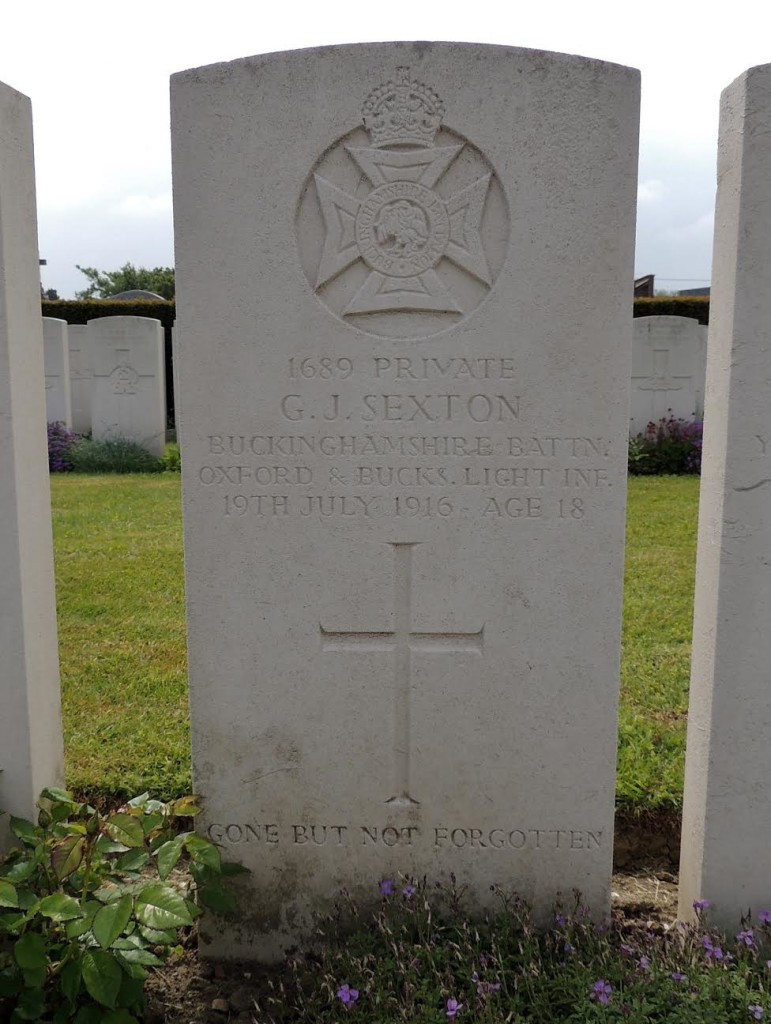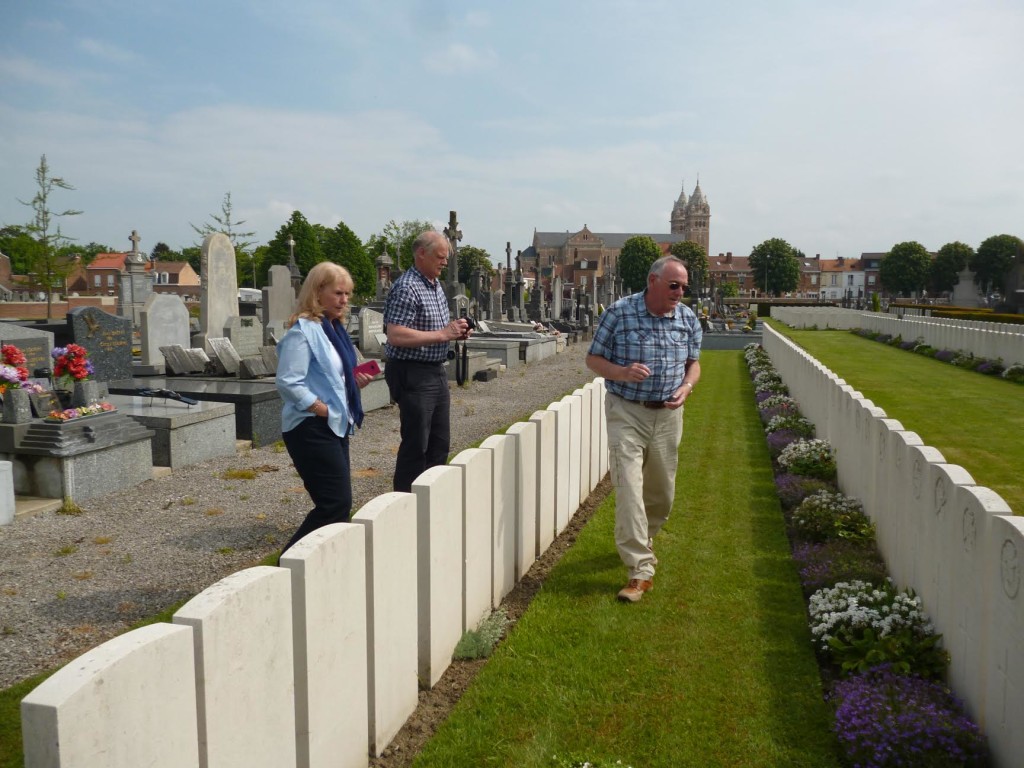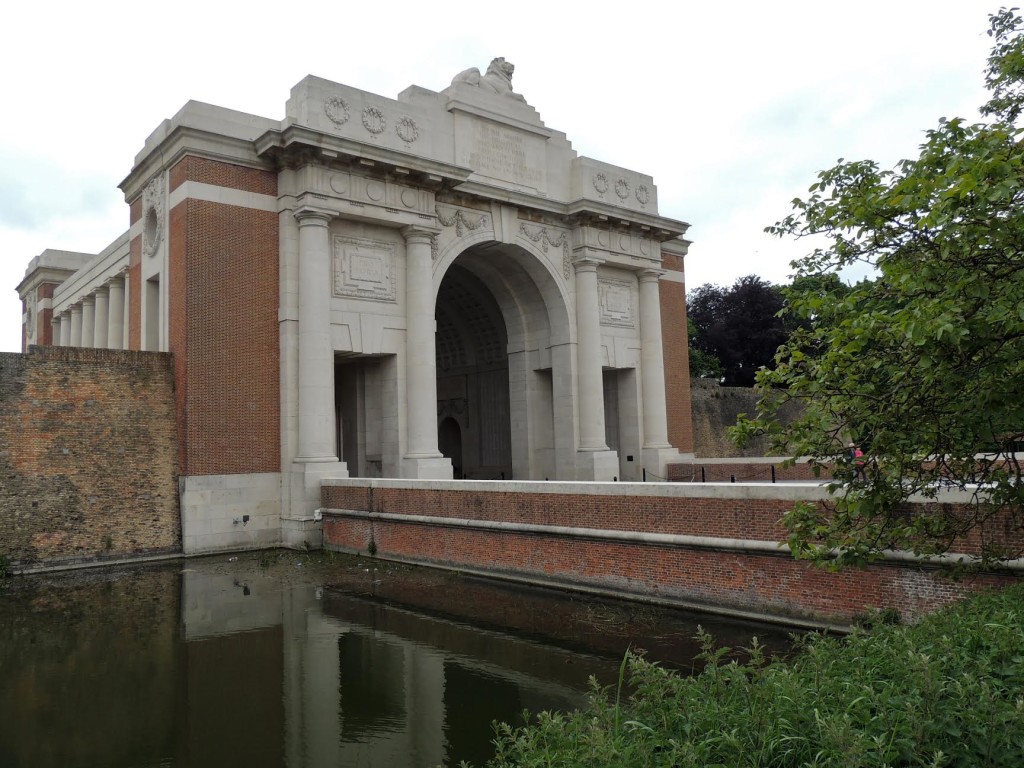Private Gilbert Sexton
The first morning of the Gerrards and Hodsons’ Somme trip had been spent finding graves and memorials to Richard Hodson’s family members. Now, well-fed and watered after our omelette lunch at a typical French tabac, we were up for our next challenge – this time to find the site at Fromelles where Francis’ uncle, the eighteen year old Private Gilbert Sexton, son of William Henry and Elizabeth Sexton of West Wycombe in Buckinghamshire, of A Company 2/1st Buckinghamshire Battalion, The Oxfordshire and Buckinghamshire Light Infantry was killed in action at on 19 July. Gilbert’s 18th birthday was not until at least July 2016 – meaning that he must have enlisted under age as so many other keen young boys did.
“What we called ‘Gilbert’s Field’ at Fromelle the scene of the gas cylinder disaster”
Our research had verified the old family story. We had found that on 18 July 1916, on the day before the battalion was involved in a key battle, an Australian battery fired high explosives shells which dropped short on the gas cylinders which A Company had stored in their trenches. This error inflicted 78 casualties among those who were in the process of moving them back out of range of the German guns. Gilbert was amongst those wounded by friendly fire and died the next day. The Battalion suffered 178 casualties before the attack with a further 322 killed or wounded during the assault on 19 May. We found it painful to stand at the roadside looking across the peaceful fields imagining the horror of that mistaken attack as so many young men were either killed by the explosion or, worse I suspect, overwhelmed by the clouds of poisonous gas as Gilbert was.
“The Grave of Gilbert Sexton in Merville Town Cemetery”
We were now very keen to find Gilbert’s grave and headed for the town of Merville – several miles away from Fromelles where many of those involved in the friendly fire incident on the 18th were taken for burial. Unlike most of the War Grave Cemeteries which seem to stand alone in the countryside, secure within their boundary walls, Gilbert’s grave lay within rows of war graves in the middle of the Merville Town Cemetery surrounded by the imposing and ornate tombs of the town’s civilian population. Again there was a great feeling of sadness as we came to his headstone set among those of his comrades from the Buckinghamshire Battalion with whom he died. It was somehow comforting to think that his resting place was amid the bustle of a small country town. Blue aubrietia flourished at the bottom of the stone, almost hiding the words “Gone but not forgotten” which Francis’ grandparents must have chosen. Gilbert was the fourth of twelve children and his little sister Flo, who was later to have Francis, was only two when he disappeared from her life, leaving her with not even a memory of the big brother she lost.
“The war graves amid those of Merville’s residents”
Our time for exploring was gone for that day because we had an important engagement to fulfil. We were to attend the Last Post Ceremony which has been part of the life of the people of Ieper (formerly Ypres) for the past 70 or so years. The Menin Gate Memorial to the Missing is one of the largest British and Commonwealth memorials to those whose bodies were never found in the battlefield area of the Ypres Salient in Belgian Flanders. Engraved on its walls are the names of 54,389 officers and men from the UK and some Commonwealth Forces and the nightly ceremony recognises the courage and sacrifice of those who fell in defence of their town.
“The Menin Gate Memorial to the Missing” at Ieper (formerly Ypres)”
Well before the 8pm start time we joined the packed crowd clustered under the arches of the gate and as the ceremony got under way we were touched by the sound of the bugles playing the Last Post and the fleeting glimpse of the British Legion Standard Bearer taking part. An unidentified English choir sang of war and loss and the crowd was hushed – perhaps each thinking of particular members of their family who had given their life in that awful war. We were glad that the two members of Richard’s family whose Somme experiences we would be tracking down the next day had both survived.




